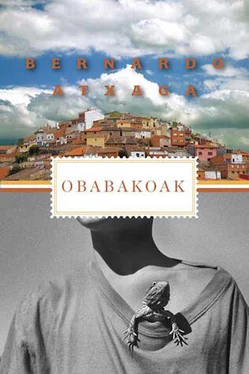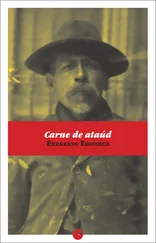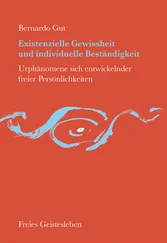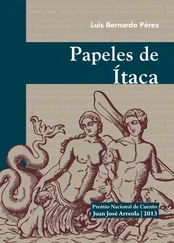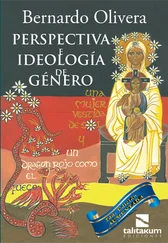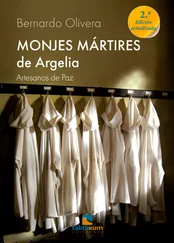Bernardo Atxaga - Obabakoak
Здесь есть возможность читать онлайн «Bernardo Atxaga - Obabakoak» весь текст электронной книги совершенно бесплатно (целиком полную версию без сокращений). В некоторых случаях можно слушать аудио, скачать через торрент в формате fb2 и присутствует краткое содержание. Год выпуска: 2010, Издательство: Graywolf Press, Жанр: Современная проза, на английском языке. Описание произведения, (предисловие) а так же отзывы посетителей доступны на портале библиотеки ЛибКат.
- Название:Obabakoak
- Автор:
- Издательство:Graywolf Press
- Жанр:
- Год:2010
- ISBN:нет данных
- Рейтинг книги:3 / 5. Голосов: 1
-
Избранное:Добавить в избранное
- Отзывы:
-
Ваша оценка:
- 60
- 1
- 2
- 3
- 4
- 5
Obabakoak: краткое содержание, описание и аннотация
Предлагаем к чтению аннотацию, описание, краткое содержание или предисловие (зависит от того, что написал сам автор книги «Obabakoak»). Если вы не нашли необходимую информацию о книге — напишите в комментариях, мы постараемся отыскать её.
Obabakoak
The Observer
Obabakoak — читать онлайн бесплатно полную книгу (весь текст) целиком
Ниже представлен текст книги, разбитый по страницам. Система сохранения места последней прочитанной страницы, позволяет с удобством читать онлайн бесплатно книгу «Obabakoak», без необходимости каждый раз заново искать на чём Вы остановились. Поставьте закладку, и сможете в любой момент перейти на страницу, на которой закончили чтение.
Интервал:
Закладка:
“I think that was Ismael,” said my friend.
“What?”
“I think it was Ismael driving that Lancia. At least it looked like him.”
“He’ll be going to Obaba to spend Sunday, like us,” I said.
“I told you the lizard story still had plenty of mileage in it,” laughed my friend.
“Just like the one the old man wanted to tell us, the one about the monkey from Montevideo. I’m sure we’ll hear the whole thing one day.”
“So we’re back to where we started. We need to clarify our ideas before that occasion arises. Otherwise we won’t be able to tell him if his story is good or bad, and the old man will be disappointed,” said my friend. I noticed that he was becoming more and more animated.
“You begin. Tell me a story you think is good.”
“I’d choose one by Chekhov.”
My friend then gave me a summary of one called “Sleep”: Varka, a very young maid working in a rich house, could never get to sleep. What stopped her was the baby she was in charge of, an insomniac baby that cried all night. She cradled it in her arms and sang it sweet songs, but all in vain. The more she longed for sleep and the more exhausted she became for lack of it, the more the child howled. And so it went on day after day, until one morning, the parents of the child leaned over the cradle to say good morning and realized with horror that …
When my friend had finished, I began to tell him a story by Evelyn Waugh entitled “Mr. Loveday’s Little Outing”: A high society lady takes pity on a kindly, mild-mannered old man who has spent the last twenty-five years locked up in an insane asylum. “Why is he kept locked up? He seems to be such a kind person, so normal…” the lady asks the doctor. “He’s here of his own free will. He’s the one who doesn’t want to leave. He must have been very different before because, according to what we were told, he killed a young girl, apparently for no reason whatsoever, when she was out for a quiet cycle ride. But things are different now. After all this time, he ought to be out in the world.” Then the lady tries to convince the old man that he would be much better off outside, that freedom is a marvelous thing, even offering to help him make the necessary arrangements. “I don’t much want to leave here,” says the old man, “but you’ve convinced me by what you’ve said. Yes, I think a change of air would do me good. And besides, there is one thing I’d like to do.” And so the kindly, mild-mannered old man regains his freedom. But only a few hours after leaving, he’s back at the asylum. Meanwhile, not far away, a lorry driver finds a bicycle lying by the roadside, and …
“Excellent. We agree then. That’s my idea of a successful story too. There’s another one I like, about a necklace. It’s by Maupassant. Do you know the one I mean?”
“I do but it’s been ages since I read it,” I said as we overtook a minivan.
“The protagonist was called Mathilde Loisel, wasn’t she? Yes, I think that was her name,” my friend began.
But he was forced to fall silent again for a moment before continuing because the driver of the minivan — either annoyed at us for overtaking him or because he was in a playful mood — accelerated until he was almost alongside us, on our left, making a hell of a noise.
I braked and let him get ahead of us. My friend and I needed silence.
“Have a good time in France,” we both said when we saw the French license plate.
“Mathilde Loisel lived in France too. She lived in Paris,” my friend went on, “in the elegant Paris of the eighteenth century. She was married to a boring civil servant and her life with him was far from stimulating. And then one day she received an invitation to go to a ball held by the Minister, M. Ramponneau. This good news, however, only made Mathilde sadder still. She wanted with all her heart to go to the ball but how could she? What dress could she put on? What jewels could she wear? Then she suddenly remembered a childhood friend of hers who had married a very rich man. Why not ask her if she could borrow some jewels? She decided she would and she got the jewels, among them a beautiful pearl necklace…”
“Ah, now I remember. Having danced until she dropped, Mathilde Loisel suddenly realized that the pearl necklace her friend had lent her was no longer around her neck. She’d lost it… isn’t that what happens?”
“Exactly. Mathilde had lost the necklace. But, of course, she couldn’t tell her friend what had happened. She had to give it back to her. And so she mortgaged everything she had, even her life, in order to be able to buy another necklace.”
“Yes, the whole affair proved disastrous for her. She had to work day and night to earn enough to buy another necklace. And then, just imagine, some years later, walking along the street, she meets her childhood friend. And what does she discover? That the pearls on the necklace she had lent her were fake, it was costume jewelry!”
“You won’t believe this, Mathilde,” said her friend, “but this necklace hasn’t been the same since you wore it to that ball, the pearls have a different quality about them altogether, almost as if they were real.”
That story was followed by another by Schwob, the story by Schwob by one by Chesterton, and then, telling tales as we went, we left the highway and took the road that winds through the mountains to Obaba. We opened the car windows.
“When we were little, we used to call this road ‘the road of moths,’” I said to my friend.
“I’m not surprised,” he replied. In the beam of the car lights, an infinite number of white moths could be seen fluttering about us.
“It looks like it’s snowing,” added my friend.
“We often came this way when we were small. By bike, of course, like the girls in Evelyn Waugh’s story. We’d spend the whole summer riding around on our bikes.”
“But why are there so many moths?” asked my friend.
“I think this particular variety of white moth feeds on mint. And the woods we’re passing through now are full of the stuff. I imagine that must be the reason.”
Inspired by what I’d just said, I stuck my head out the window and took a deep breath of the warm summer air. Yes, the woods still smelled of mint.
We drove the next mile or two in silence, each of us immersed in his own thoughts, observing the moths, watching for stirrings in the woods. From time to time, where there was a stretch of road with clear views to the side, we could make out the bright lights of houses on the slopes of the mountains, distant and solitary.
When we were only half an hour from Obaba, we saw a small white cloud form in the sky among the stars. The small cloud was followed by the noise of a rocket exploding.
“There must be a fiesta in one of the villages near here,” said my friend.
“That one down there,” I said, pointing to a bell tower whose silhouette stood out above the trees.
“It seems moths aren’t too keen on fiestas. Look, they’ve disappeared.”
My friend was right. At that moment, the car headlights showed only the colored flags adorning the roadside.
We parked the car right at the entrance to the village, on a hill. From there, as if from a high balcony, we looked out over the whole square and could watch the dancing. The music from the small band came to us in gusts, depending on which way the wind was blowing.
“So what conclusions have we reached about stories then?” my friend asked.
He didn’t want to go down and mingle with the crowds without first clarifying the question, at least to some extent. And to tell the truth I felt exactly the same. It was nice up on that hill, ideal for daydreaming and smoking.
We didn’t stay there long, but, even so, we managed to make a fairly reasoned analysis of what it was that writers as fine as Chekhov, Waugh, and Maupassant set out to achieve when it came to writing their stories; and, in conclusion, we managed to establish the characteristics of the genre and were left with a sense of having had a highly profitable conversation.
Читать дальшеИнтервал:
Закладка:
Похожие книги на «Obabakoak»
Представляем Вашему вниманию похожие книги на «Obabakoak» списком для выбора. Мы отобрали схожую по названию и смыслу литературу в надежде предоставить читателям больше вариантов отыскать новые, интересные, ещё непрочитанные произведения.
Обсуждение, отзывы о книге «Obabakoak» и просто собственные мнения читателей. Оставьте ваши комментарии, напишите, что Вы думаете о произведении, его смысле или главных героях. Укажите что конкретно понравилось, а что нет, и почему Вы так считаете.
